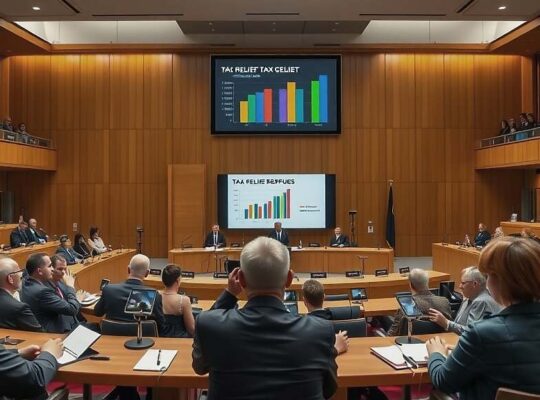A new study by the Ifo Institute has revealed a concerning trend in Germany’s budgetary planning, with a projected one-third (33.3%) of all federal tax revenues earmarked for the state pension system in the upcoming 2026 budget. This significant allocation, totaling €127.8 billion in federal subsidies for statutory pensions, raises serious questions about the government’s ability to invest in future-oriented policies.
The Ifo study, analyzing the government’s draft budget, highlights a broader issue: pension payments now account for nearly a quarter of the overall federal budget. The Federal Ministry of Social Affairs and Labour, the primary recipient of these funds, has seen its annual growth rate escalate from an average of 1.37% (inflation-adjusted) pre-pandemic (2016-2019) to a concerning 2.27% between 2024 and 2026.
This reliance on pension subsidies is forcing a sharp reduction in fiscal flexibility. Emilie Höslinger, an Ifo researcher, cautioned that “without structural reforms, the federal government will permanently need to allocate more money for the statutory pension system. This constricts the scope for future-oriented spending in the regular budget.
The report further underscores a worrying rise in government debt. Federal borrowing now constitutes approximately 19% of overall core budget revenues, a significant shift from the 74% tax share now observed – a stark contrast to pre-pandemic levels between 90 and 93%. Höslinger argues this represents a postponement of unresolved financing challenges, burdening future generations with repayment and interest costs.
The figures are drawn from an analysis of the core federal budget, which initially envisions €520.5 billion. Additional expenditures within multiple special funds are projected to reach €119.96 billion. Notably, the Ifo study does not incorporate adjustments made during a recent parliamentary budget committee session, implying the situation could be even more precarious. This continued reliance on debt and shifting resources toward pensions risks jeopardizing Germany’s long-term economic stability and limiting its capacity to address other pressing national priorities.












